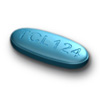Diphenhydramine/phenylephrine and Alcohol/Food Interactions
There are 2 alcohol/food/lifestyle interactions with diphenhydramine / phenylephrine.
Phenylephrine Caffeine
Moderate Drug Interaction
Both phenylephrine and caffeine can increase blood pressure and heart rate, and combining them may enhance these effects. Talk to your doctor before using these medications, especially if you have a history of high blood pressure or heart disease. You may need a dose adjustment or more frequent monitoring by your doctor to safely use both medications. Contact your doctor if your condition changes or you experience increased side effects. It is important to tell your doctor about all other medications you use, including vitamins and herbs. Do not stop using any medications without first talking to your doctor.
Diphenhydramine Alcohol (Ethanol)
Moderate Drug Interaction
Ask your doctor before using diphenhydrAMINE together with ethanol (alcohol). Use alcohol cautiously. Alcohol may increase drowsiness and dizziness while you are taking diphenhydrAMINE. You should be warned not to exceed recommended dosages and to avoid activities requiring mental alertness. If your doctor prescribes these medications together, you may need a dose adjustment to safely take this combination. It is important to tell your doctor about all other medications you use, including vitamins and herbs. Do not stop using any medications without first talking to your doctor.
Switch to professional interaction data
Diphenhydramine/phenylephrine drug interactions
There are 576 drug interactions with diphenhydramine / phenylephrine.
Diphenhydramine/phenylephrine disease interactions
There are 12 disease interactions with diphenhydramine / phenylephrine which include:
- depression
- cardiovascular disease
- anticholinergic effects
- asthma/COPD
- cardiovascular
- renal/liver disease
- glaucoma
- liver disease
- resp depression
- BPH
- diabetes
- glaucoma
More about diphenhydramine / phenylephrine
- diphenhydramine/phenylephrine consumer information
- Check interactions
- Compare alternatives
- Reviews (1)
- Drug images
- Side effects
- Dosage information
- During pregnancy
- Drug class: upper respiratory combinations
Related treatment guides
Drug Interaction Classification
| Highly clinically significant. Avoid combinations; the risk of the interaction outweighs the benefit. | |
| Moderately clinically significant. Usually avoid combinations; use it only under special circumstances. | |
| Minimally clinically significant. Minimize risk; assess risk and consider an alternative drug, take steps to circumvent the interaction risk and/or institute a monitoring plan. | |
| No interaction information available. |
Further information
Always consult your healthcare provider to ensure the information displayed on this page applies to your personal circumstances.


